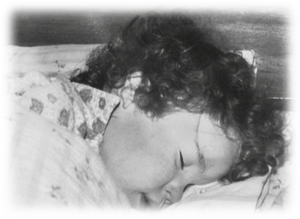 Why sleep is good for children Our brains are always active, even when we are asleep. While sleeping, the brain clears out its waste, sorts and stores information into our memories and regulates many of our body’s functions. Sleep is important for everyone, especially children as they are growing and learning at a great rate. Here are some of the reasons why. Growth and development While a child sleeps growth hormone is released which is responsible for the development of bone and muscle bulk. Children who get less sleep have less growth hormone. Memory and therefore learning While a child sleeps the things they’ve done and learnt during the day get sorted and stored in their long-term memory. If they are sleep-deprived they’ll store 40% less information than those who get enough sleep. Also sleep prepares them for learning, ensuring children can stay awake, concentrate and pay attention. Emotional, Social and Mental Health Studies show when sleep deprived we become 60% more emotionally reactive and are physically slower responding to things; much like being drunk. Lack of sleep may explain why some children are hyperactive, miss social cues, have regular “melt downs”, are anxious or appear clumsy and uncoordinated. This may also account for some childhood accidents. Poor sleep is an issue in most mental health problems - anxiety, depression, post-traumatic stress disorder. Improves our immune system A child’s immune system keeps developing until adulthood. While sleeping they produce cytokines (small proteins), which help them fight infections. After just one poor night’s sleep the activity of cytokines reduces by 75%, making a child more susceptible to infections such as the common cold. Maintaining a healthy body weight Sleep helps regulate the daily fluctuations in the appetite hormones ghrelin (stimulates appetite) and lectin (suppresses appetite). This means children don’t feel the need to eat constantly throughout the day or to store excess calories, so they don’t gain too much weight. If they eat a healthy amount they will sustain their bodies and gain some muscle mass. Those children who don’t get enough sleep are more likely to be overweight, although there are other factors that influence weight gain. The bodies of children who get enough sleep are able to react to insulin levels better. Insulin controls the levels of glucose in the blood. Those who don’t get enough sleep have higher blood sugar levels and are at higher risk of developing type 2 diabetes. How much sleep is enough? Eric J. Olson’s (MD) guidelines recommend the following: Age group. Newborns: 14 to 17 hours a day 12 months: About 10 hours at night, plus 4 hours of naps 2 years: About 11 to 12 hours at night, plus a 1- to 2-hour afternoon nap 3 to 5 years: 10 to 13 hours 6 to 13 years: 9 to 11 hours 14 to 17 years: 8 to 10 hours Adults: 7 to 9 hours Our next post on sleep will give some tips on how to establish good sleeping patterns for your children. Comments are closed.
|
AuthorShonagh O'Hagan Archives
July 2024
|

 RSS Feed
RSS Feed